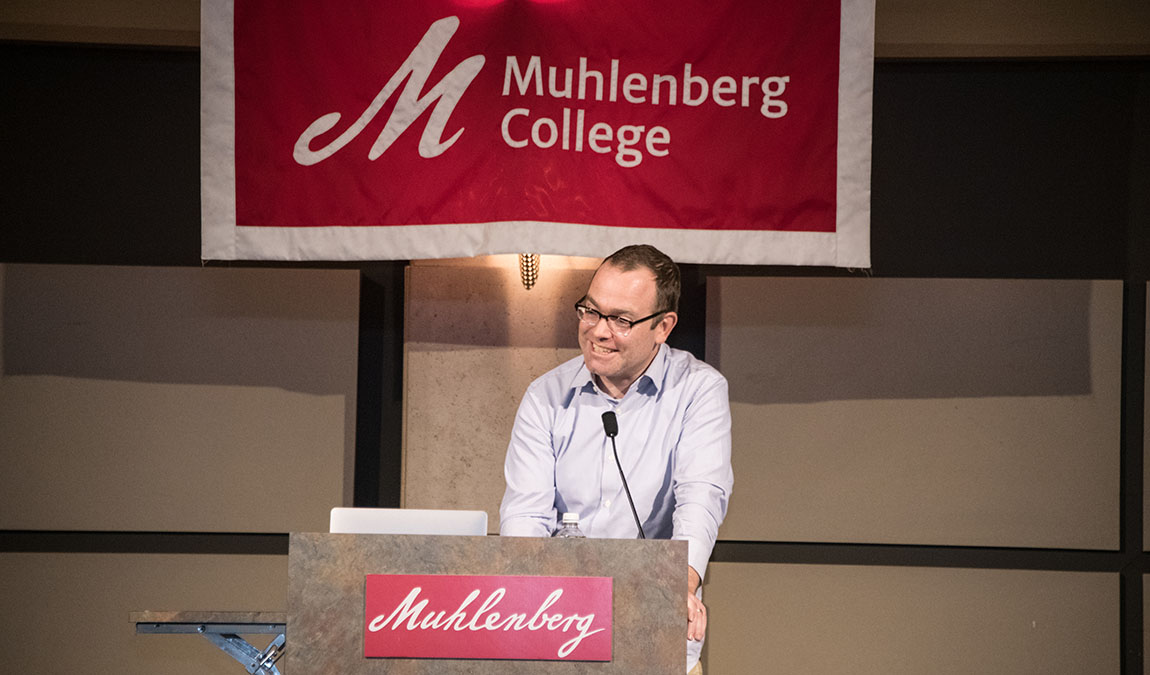Why I Study … Queer China
Assistant Professor of Anthropology Casey James Miller explains how he came to his area of research.
Friday, November 18, 2022 00:28 PM

Assistant Professor of Anthropology Casey James Miller
I finished my last two years of high school as an exchange student in Hong Kong. I didn’t know anything about China — I just wanted to get as far away from home as possible. At the time I was coming out as gay myself, so I got really interested in Chinese gay culture and history. I had a teacher who told me that there were no gay people in China. Even as a 17-year-old, I knew that didn’t sound right, so I did my extended essay for the [International Baccalaureate] on the history of homosexuality in China.
In college, I knew I wanted to study Chinese society. As an undergraduate, I thought that meant going into political science, but what I really wanted to study was people’s everyday lives. I found cultural anthropology when I got my master’s. The discipline gave me the tools to study what I was really interested in: what does it mean to be a queer person living in a country like China today?
As a Ph.D. student, I began doing fieldwork in urban northwest China, in the city of Xi’an, with gay and lesbian activists and nongovernmental organizations (NGOs). At the time, very little research had been done on queer Chinese culture and much of it had been focused in cities like Beijing and Shanghai. That would be like if you were studying American queer culture and you only studied L.A. and New York City.
My research focused on queer grassroots culture and activism. It was not only a great way to learn more about what it is like to be queer in the world’s largest country, but also to understand the huge changes that are taking place in Chinese culture and society right now.
There have been a lot of arguments in the literature that Western consumerism, selfishness and individualism have flooded into the moral and ideological vacuum left by the retreat of the Chinese socialist state. One thing that I found through my research that challenges this argument is that, instead of prioritizing their own queer identities and desires, gay and lesbian activists are much more interested in what it means to be a moral person according to local traditional understandings. For example, they often do not come out to their families, especially their parents, because they’re worried about the harm that might cause to their family structures.
One of the saddest and most interesting things I found in my research was that, at least among queer men in Northwest China, there’s this idea that love between two men cannot last long-term. When I asked why, they said, “Well, love is just like that.” It doesn’t matter if it’s queer or straight. There’s this initial period of intense, romantic sexual passion and energy, and that slowly fades and turns to a more stable, familial, dependable intimacy. My queer informants would argue that what’s different for queer people is that they can’t get married or have children, and that’s the glue that keeps people together.
There’s this incredible pressure to get married in China. At work, your boss might not want to promote you [if you’re not married], or your coworkers will talk about you. Your friends and family members constantly try to set you up on dates. One thing a lot of queer people are doing in China is arranging marriages between gay men and lesbian women. While you’re not marrying [a straight person] under false pretenses, there are problems that go along with these arrangements. Once you get married, you have to have children. You have to figure out your living situation: is the couple going to live together? Are the boyfriends and girlfriends going to all live together in a big queer family? What happens when parents come for a visit? It’s really difficult to negotiate these arrangements, and they often privilege men, because China’s still a very patriarchal country in many ways.
Right before the COVID-19 pandemic, I had just started a new project with a new gay NGO, PFLAG China. It’s similar to the American organization Parents and Friends of Lesbians and Gays. One of the things they organized was called a Rainbow Cruise: queer kids would take their parents on this cruise and tell them it’s just a normal vacation. Then, when the ship gets in the middle of the ocean, they have this mass coming-out event. The parents can’t escape or act out too much because they’re in the middle of the ocean, surrounded by other parents. They also have parents who’ve already been through this process and have accepted their children on hand to talk to the new parents.
I got permission from the group to attend the second Rainbow Cruise as a researcher in 2019. What I found was that, while it looks like Western style gay liberation — “we’re here, we’re queer, get used to it” — it’s very much inflected through traditional Chinese culture and values. PFLAG China is all about preserving and strengthening family harmony and preserving relationships between parents and children. Still, they did get partially closed down by the government recently. I’m not sure there will be any more cruises, but at least I got to go to one.








